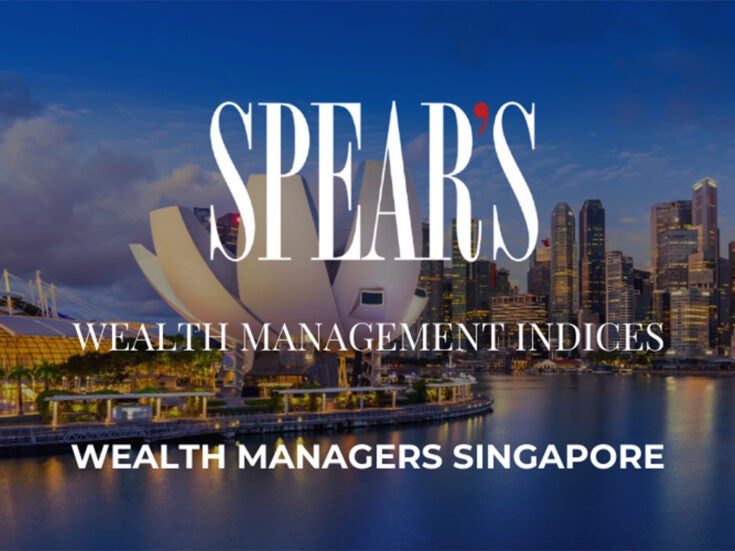Sustaining the European luxury-goods market is not merely an economic necessity but also a moral obligation. Go forth and spend, for heaven’s sake your country needs you, says Nick Foulkes
Sustaining the European luxury-goods market is not merely an economic necessity but also a moral obligation. Go forth and spend, for heaven’s sake — your country needs you, says Nick Foulkes
Over recent months I have often heard the term ‘flight to quality’, three words used to characterise the behaviour of money during such a crisis as the one that grips us now.
When I first heard of the ‘flight to quality’ I wrote it off as another piece of jargon picked up from that linguistic flea market CNN; but the more I think about it, the more it is beginning to make sense.
Recent months have seen all sorts of theories collapse and all sorts of totems topple; money is no longer safe in the bank; so-called financial professionals like Horlick and Busson have been taken in by Madoff; the pound will soon reach parity with the Zimbabwean Ringgit or the Democratic Republic of Congo’s Sesterce… entropy surrounds us.
And yet one thing unites us all: wherever you are in the world there is only one ideology… which is where the ‘flight to quality’ comes in.
Whether you find yourself in Moscow, Manhattan, Mayfair or Manchuria you are in a consumer society. In the pages of Solzhenitsyn or Grossman one encounters fierce ideologues who continue to cleave to the Communist system, even though they find themselves imprisoned within or otherwise marginalised by it; the way in which these characters seem so odd and so alien today is to understand how much has changed.
Much as our materialism may have its shortcomings; things, trinkets, gewgaws are, on the whole, less dangerous than strongly held opinions. Ideas are where the danger lies. After all, if Osama bin Laden had spent his time more usefully visiting his tailor and his cigar merchant, then the world would be a safer place.
Once upon a time a society like the Soviet Union nourished itself on ideas; today it subsists on a diet of imported Western luxury goods, which a few enjoy and to which a great many more aspire.
OK, I hyperbolise, but you see where I am going: once when there was a ceiling to what he could earn or own, the Soviet intellectual would discuss ideas long into the night: today he is more likely to be staying awake figuring out how to hang on to his large house in London, his palace on the Riviera, the yacht, the new Rolls-Royce Phantom, the cellar of the finest wines known to man or indeed any other of the small compensations that make life in our capitalist system so bearable.
For too long I have been hearing about how the ‘new’ economies of the East will make vassals of us in the Old World; but don’t forget that as much as we need the mineral wealth of former Soviet countries, they need to sell it to us, and if we suffer economically in Europe, who is then going to buy the cheap, branded tat churned out by factories in the Far East?
Besides, what do the elite of those countries want to do when they get their first bit of spending money? They want to buy our luxury goods; they want to send their children to Eton (or, failing that, any English public school will do); they want to live in our cities; eat in our restaurants; sunbathe on our beaches; visit our tailors; ski on our slopes; drink our wine; join our clubs and so on.
Luxury goods and savoir faire are what makes Europe strong; they are our natural resource. With the exception of naturally occurring items such as cashmere, caviar and diamonds, there is no luxury-goods culture to speak of that is not European.
Europe may have become a theme park for the world’s rich, but then it was ever thus. I have just finished writing a book about American High Society (it is published by Assouline — even if you don’t like the text you can look at the lovely pictures) and what is happening today is only a rerun of what happened in the closing years of the 19th century and early years of the 20th.
Back then Americans were making so much money (apparently Cornelius Vanderbilt was richer in real terms than Bill Gates is today) that they came and bought as much of Europe as they could, going home with everything from art collections to aristocratic husbands for their daughters. Today only the nationalities have changed.
As long as the powerful people in the world are united by a taste for the better things life has to offer, things can’t go too far wrong. In other words, why on earth would you want to destroy a country when you can have much more fun visiting it on a shopping trip?
So there you have it, world peace and economic stability will be guaranteed not by treaties and summits, but by keeping Europe’s luxury-goods industry as strong and as a powerful as it has become over the past fifteen years.
So when you are agonising over whether to buy the Tuscan holiday, the Girard Perregaux tourbillon with three golden bridges, or the Birkin, don’t think about it, take the lot and console yourself that you are doing your duty, keeping Europe’s grandes maisons de luxe strong and the world safe. That is what is meant by a ‘flight to quality’.








